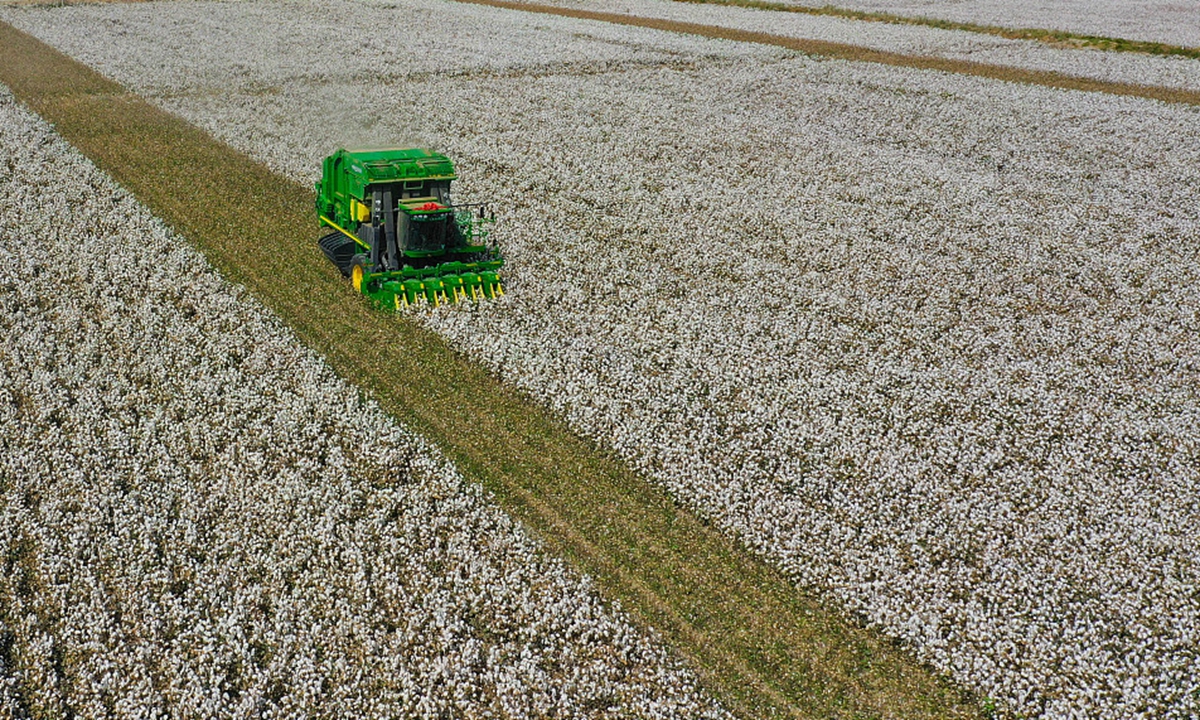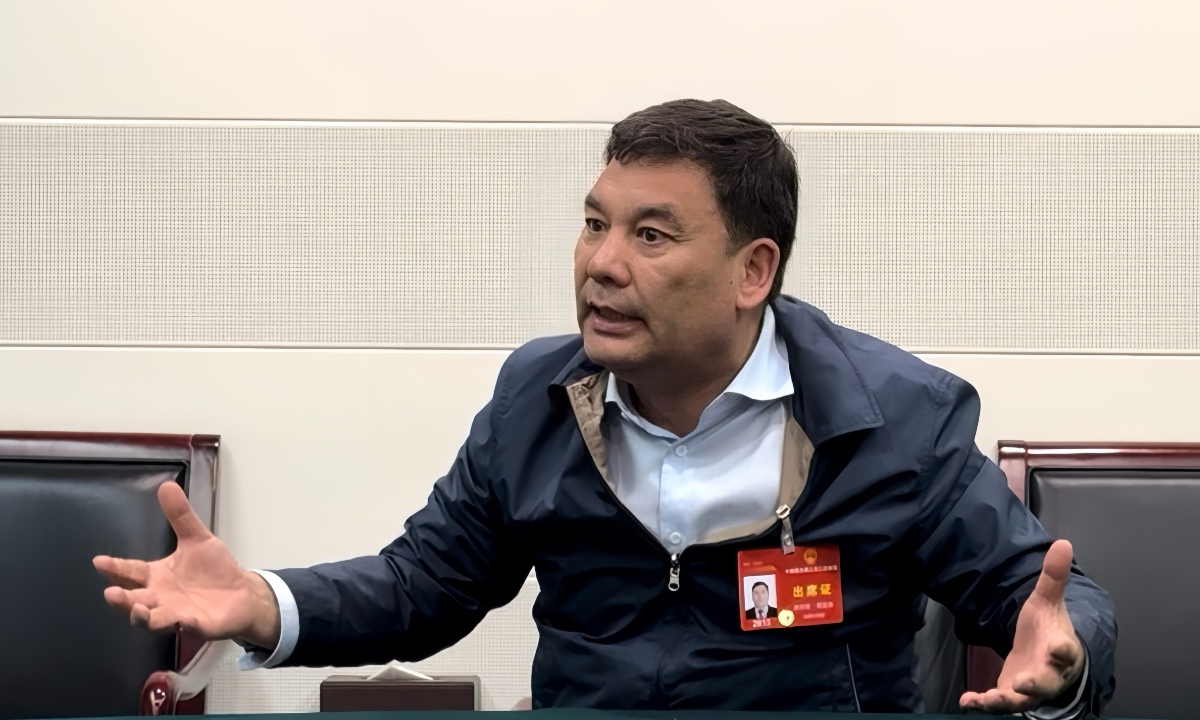
Xinjiang cotton Photo: VCG
The European Union's reported surge in imports from Northwest China's Xinjiang Uygur Autonomous Region, as Brussels is set to finalize a ban targeting goods from the region, highlights the enormous demand and the bloc's dependency on Xinjiang's products. Experts pointed out the ban illustrates that the bloc is bowing to pressure from the US.
Exports from Xinjiang to the EU's 27 members rose 217.8 percent in January and February compared with the same period last year, according to the South China Morning Post's calculations based on new Chinese trade data released on Wednesday.
The biggest buyers of goods from Xinjiang were Poland, Belgium and the Netherlands.
The most popular goods were lithium-ion batteries, tomato paste and miscellaneous low-value goods that fall below the threshold for customs duties, the SCMP cited Chinese customs data as saying.
In early March, the EU reached a provisional agreement to ban goods made using "forced labor," advancing legislation that was broadly written with China in mind, media reported.
The ban, which still needs to be approved by the European Parliament and the Council - made up of EU member states - will target specific economic sectors in places where "state-imposed forced labor" exists, based on a database drawn up by the European Commission.
The increase is attributed to businesses hoarding goods in advance of a ban, as normal trading of goods would not see such a large increase. Because Europe has a high demand for Xinjiang cotton and agricultural products, it is not feasible to suddenly cancel orders, so manufacturers are making advance preparations, Zhao Yongsheng, a research fellow of the Institute of Regional and International Studies at the University of International Business and Economics in Beijing, told the Global Times.
He noted that this surge also indicates the impact of the ban on Europe.
The EU's move came after the US first called on the EU to properly address so-called documented human rights issues in Xinjiang five years ago. The US in 2022 blocked all imports from Xinjiang.
Zhao noted that the EU's move is bowing to pressure from the US. "Whether the ban can be passed partly depends on how much the US is pressuring it."
Forced labor is an excuse frequently used by Western countries to smear Xinjiang.
In an open panel discussion during the second session of the 14th National People's Congress on March 7, Akram Memtimin, an official from Saymahalla village in Xinjiang's Luntai county said "the alleged forced labor is sheer nonsense. I can use my own experience to explain it," in response to false reports from certain foreign media outlets that have been promoting the fallacy of "forced labor" in Xinjiang's cotton industry.
This bill will greatly increase the production costs of European companies, with many companies seeing their production costs double. Ultimately, it will be the consumers in the EU who will foot the bill. This will also have an impact on the adjustment of the industrial chain in Europe, Zhao said.
The ban also triggered setbacks within the EU. German industrial lobbyists panned the ban as a "further setback for Europe's competitiveness," after Berlin's abstention failed to halt its passage, media reported.

